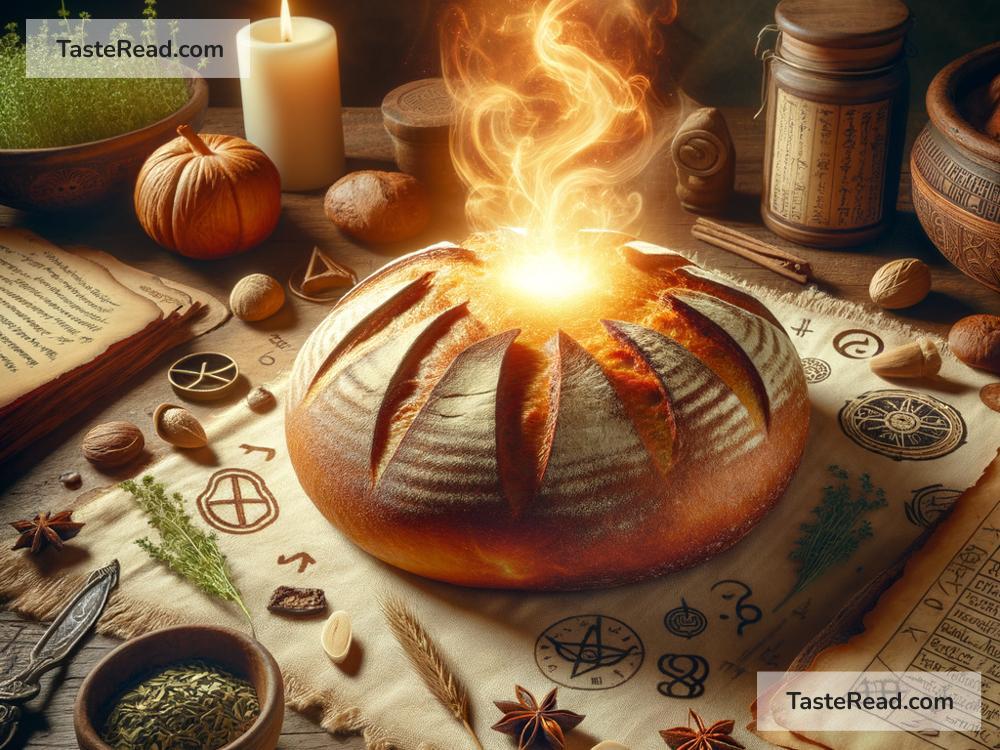The Mythical Story of the Bread That Transforms
Imagine living in a world where bread was not just a simple food but held magical powers that could change lives. Passed down through generations, there is a mythical story about “The Transforming Bread,” a loaf said to shape destinies, cure ailments, and reveal truths. This enchanting tale reminds us of the power of hope and the bond between ordinary objects and extraordinary possibilities.
The Birth of the Myth
Long ago, in a peaceful village surrounded by towering mountains, there was a baker named Elias. He wasn’t just any baker—his bread was special. People came from far and wide to taste his creations because they believed his bread had the ability to bring happiness. Every loaf seemed to carry a piece of Elias’s kindness and generosity.
One day, Elias ventured deep into the forest to gather herbs for a new recipe. As he wandered, he stumbled upon an unusual sight: a golden wheat field shimmering like stars under the sun. At the center of the field stood a woman with glowing eyes and a radiant presence. She introduced herself as Alethea, the guardian of the field, and told Elias that this wheat contained magical properties.
“With this wheat, you can create bread that is no longer ordinary,” Alethea said. “But be warned—it will only reveal its magic if it is made with pure intentions and shared selflessly.”
Elias, full of wonder, promised to use the wheat to create bread that would help others and bring joy to the world. Alethea handed him a sack of golden grains and disappeared into the mist.
The Arrival of Transforming Bread
Back in his bakery, Elias mixed the golden wheat with water, salt, and herbs. As the dough rose, the bakery filled with an aroma unlike anything anyone had smelled before. The bread had a golden crust and a soft, glowing interior. But Elias didn’t know its magic until the villagers began to eat it.
The first loaf was given to a grieving widow who hadn’t smiled in years. After just one bite, she felt a warmth in her heart and remembered happier times. The next loaf went to a young farmer struggling with his crops, and suddenly, he had the strength to work harder and push through his challenges. Everyone who ate the bread felt as though they were transformed in some way—not physically, but emotionally and spiritually.
Word spread quickly, and soon, people poured in from distant lands to buy the bread. Some claimed it cured their illnesses, while others said it gave them a sense of clarity they had never known before. Elias realized the bread carried a deep magic, but he never let greed take over his heart. Instead, he continued to bake with love and shared the bread with anyone who needed it, often for free.
The Curse of Selfishness
While Elias remained humble, others grew envious of his gift. One day, a wealthy merchant arrived and offered Elias a fortune for the secret recipe to the bread. Elias refused, explaining that the bread could only be made with pure intentions and selflessness. Furious, the merchant decided to steal the golden wheat from Elias’s bakery.
When the merchant baked his own loaf using the stolen grains, something unexpected happened. The bread turned hard and tasteless. Instead of transforming lives, it made those who ate it feel empty and cold inside. This revealed a powerful truth: the bread’s magic wasn’t just in the golden wheat, but also in the heart and purpose of the baker.
Angry and defeated, the merchant exposed Elias’s secret to the villagers, sowing doubt and suspicion. People began to question Elias’s intentions—was he truly selfless, or was he using the bread to gain fame? Overwhelmed by the emotional weight of the accusations, Elias stopped baking the magical bread altogether.
The Legacy Lives On
With Elias gone, the bread disappeared from the world, but its story lived on. Legend says that Alethea still guards the golden wheat field, waiting for someone who is pure of heart to find it again. Some believe the field is hidden deep in the mountains, where only those truly deserving can stumble upon it.
To this day, storytellers across villages pass along Elias’s tale, reminding everyone that transformation doesn’t come from magic alone—it comes from intention, kindness, and sharing with others. The mythical bread serves as a symbol of how even the simplest things, like food, can change lives when paired with love and generosity.
This story teaches us an important lesson: what truly transforms us isn’t magic, but the choices we make and the way we treat each other. Whether or not the story is real doesn’t matter—its message is timeless. After all, don’t we all need a little hope and wonder in our lives?
Elias’s story reminds us that every loaf of bread, every small act of kindness, and every effort to give to others has the potential to leave a mark on someone’s life. Maybe, just maybe, the transforming bread is still out there, waiting for the right person to find it and share its magic once again.


